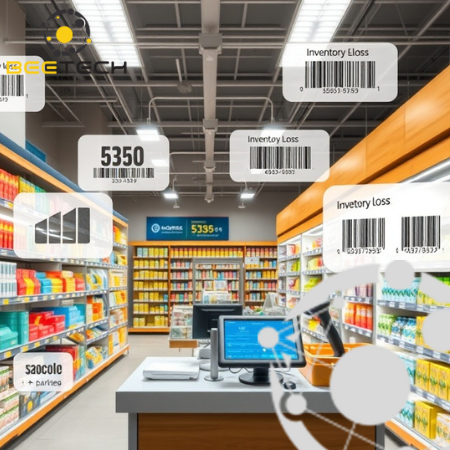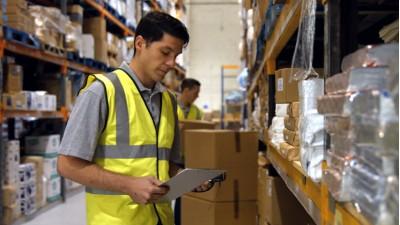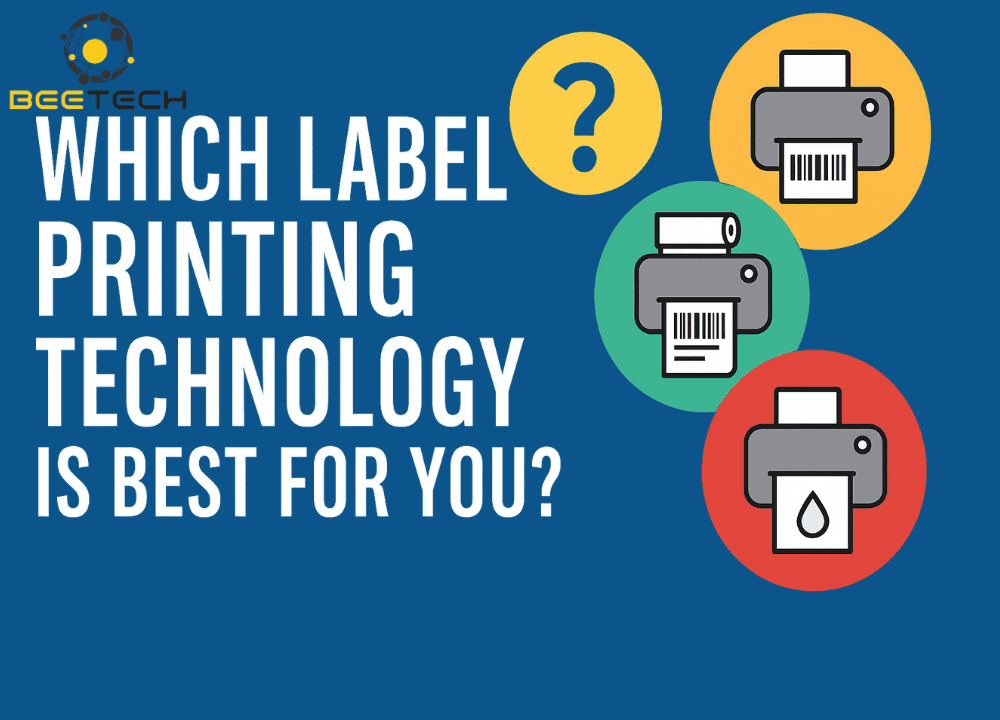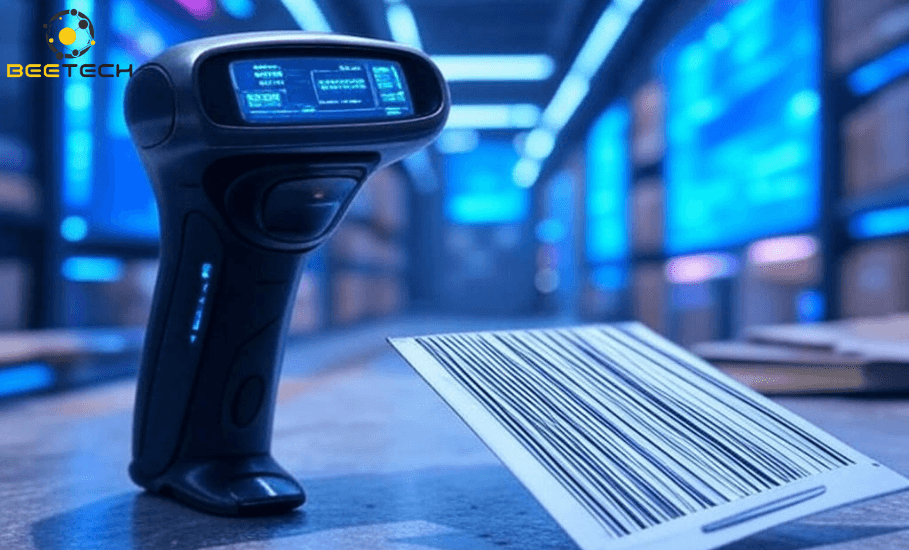80-82 Cao Duc Lan, District 2, HCMC, Vietnam
+84 76 865 6688
info@beetech.com.vn
+84 76 865 6688
About us
Contact us
80-82 Cao Duc Lan, District 2, HCMC, Vietnam
+84 76 865 6688
info@beetech.com.vn
+84 76 865 6688
About us
Contact us

Tips for managing a store with barcodes
In modern retail, competition is no longer just about products but also about operational management. Store owners face challenges such as stocktaking, inventory control, shrinkage, and customer experience. Barcodes – though simple – are a powerful tool that enables efficient management, from warehouse intake to point of sale. This article will share tips on managing your store with barcodes, along with their benefits, applications, and future trends.

A barcode is a system of encoding data using parallel lines that can be scanned to quickly identify products. With low cost and widespread use, barcodes have become the “ID card” of products, enabling consistent, accurate management and serving as an indispensable tool in retail operations.
Previously, stocktaking thousands of items could take days. Thanks to barcodes, staff can scan each product in just a few seconds. Instead of manually typing SKU codes prone to errors, barcodes make the process many times faster. This not only reduces labor costs but also frees up time for more important tasks.
Manual management often leads to mistakes such as entering the wrong quantity, mistyping product codes, or overlooking items. Barcodes eliminate these risks since all information is encoded and scanned automatically. As a result, sales and inventory data are always aligned, helping store owners make more accurate decisions.
Barcodes speed up checkout at the counter. Customers don’t have to wait long, and cashiers reduce the risk of pricing mistakes. A smooth shopping experience is key to retaining loyal customers.
Barcodes allow detailed product information to be stored, such as production date, batch, and price. This makes product traceability easier, builds customer trust, and adds transparency to store operations.
During sales campaigns, barcodes enable prices to be updated directly in the system. Staff only need to scan the code without manually changing every label. This helps stores implement promotions quickly and accurately.
Barcodes help track the number of items received, sold, and left in stock in real time. This is especially important for stores carrying a wide variety of products. When items run low, the system can automatically alert owners to restock.
At checkout, barcodes streamline the payment process. With just one scan, all product and price details instantly appear on the invoice. This reduces pressure during peak hours, increases efficiency, and boosts customer satisfaction.
For products with expiration dates, such as food and cosmetics, barcodes can encode batch numbers. This allows stores to monitor and rotate stock easily, preventing expired goods from staying on shelves.
Barcode systems combined with management software can generate reports on best-selling products, slow-moving stock, and more. This valuable data helps store owners decide what to reorder, how to design promotions, and when to adjust prices.
Invest in quality scanners and printers
Reliable barcode scanners and label printers are essential. Low-quality devices can disrupt operations and slow down checkout.
Synchronise with management systems
Barcodes are most effective when integrated with sales management software, ensuring all product, revenue, and inventory data is updated and synced in real time.
Train staff properly
While barcodes are simple, staff training is crucial. Employees should know how to scan correctly, print accurate labels, and handle common issues. This reduces errors and maximises efficiency.
Customise barcodes for products
Not all products are the same. Stores can customise barcodes for size, colour, or batch numbers—especially useful in industries like fashion and food.
Regularly check and update
Systems should be audited periodically to prevent errors. Product information, price changes, and promotions also need to be updated promptly.
Today, many stores use both barcodes and QR codes. While barcodes support internal management, QR codes provide added value for customers, such as product information or mobile-based discounts.
When barcodes are scanned thousands of times daily, the resulting data can become a “goldmine” for analysing consumer behaviour. Large retailers leverage this information to understand shopping habits and design precise business strategies.
With smartphones, mobile barcode scanning apps are increasingly popular. This opens opportunities for stores to engage with customers, letting them check prices, view product information, or participate in loyalty programs directly on their phones.
Barcodes have become a cornerstone of store management, enabling better inventory control, optimised sales, reduced losses, and enhanced customer experiences. Applying barcode systems saves both time and costs, creating long-term competitive advantages and serving as a key driver of retail business growth.
Let Beetech be your trusted partner in building a smart management system that strengthens competitiveness and takes your business further in the digital era.
📧 Email: info@beetech.com.vn
🌐 Website: https://beetech.com.vn

See more products: Here



How do barcodes work?
21/05/2025 09:52:52

6 things to know to successfully apply barcode technology to your business
19/05/2025 04:16:28

Barcode scanners help reduce shrinkage and increase inventory accuracy”
16/05/2025 04:21:10

Which Label Printing Technology Is Best for You?
16/05/2025 03:09:19

Comprehensive barcode solution: Optimize management, improve performance and digitally transform businesses
06/05/2025 03:50:33

Why can barcode scanners increase work efficiency?
05/05/2025 04:22:27